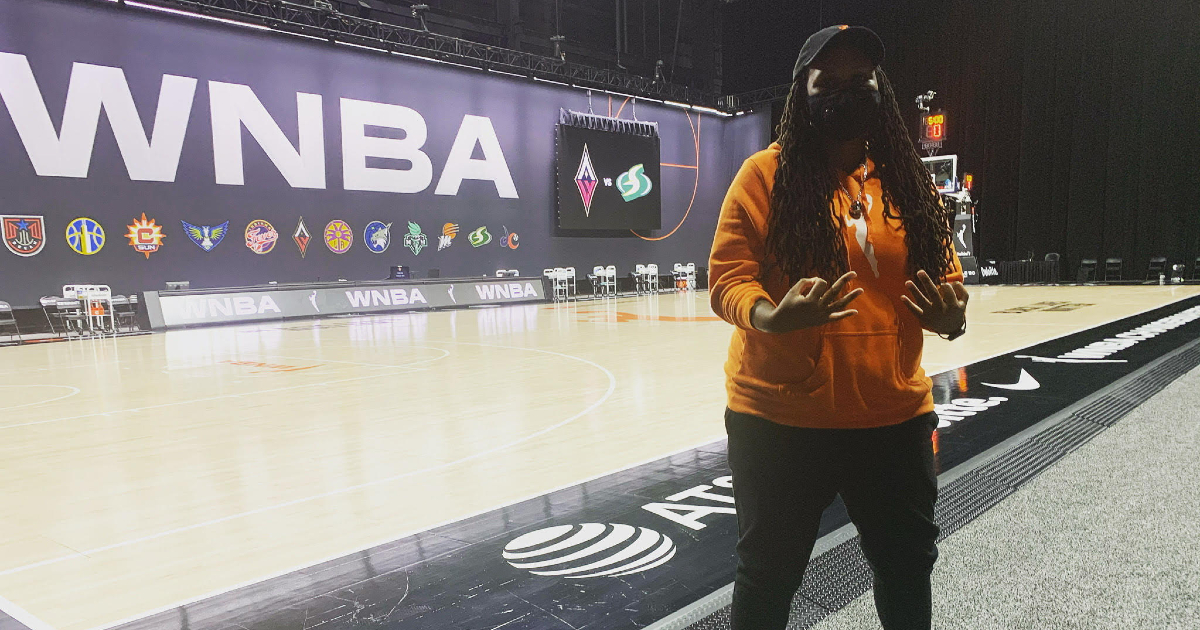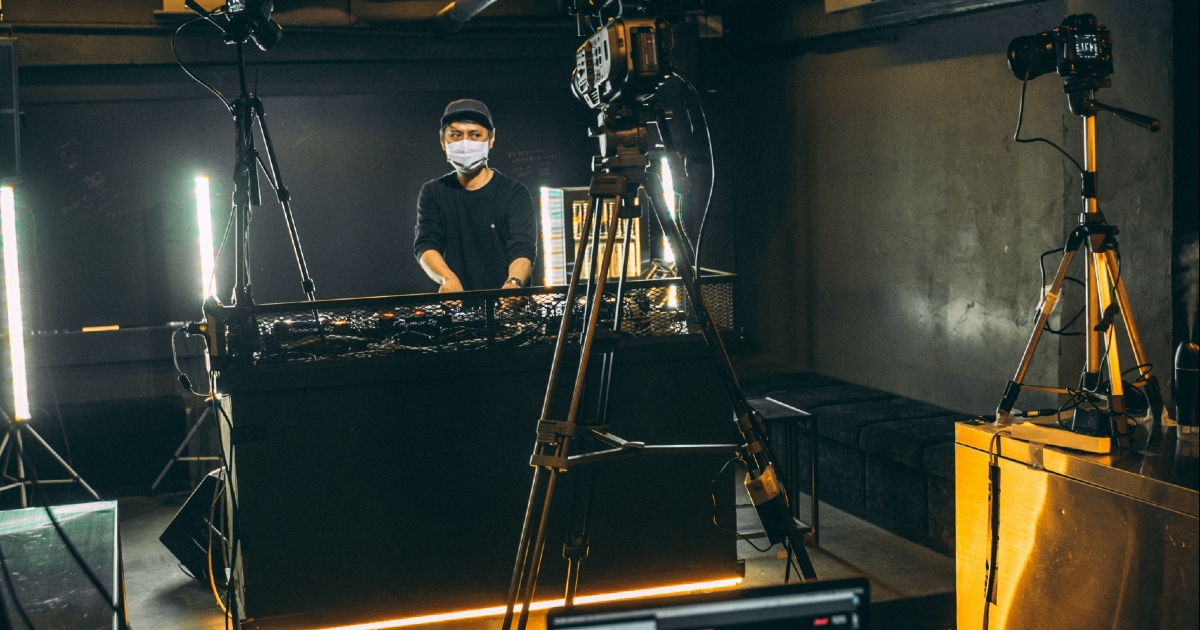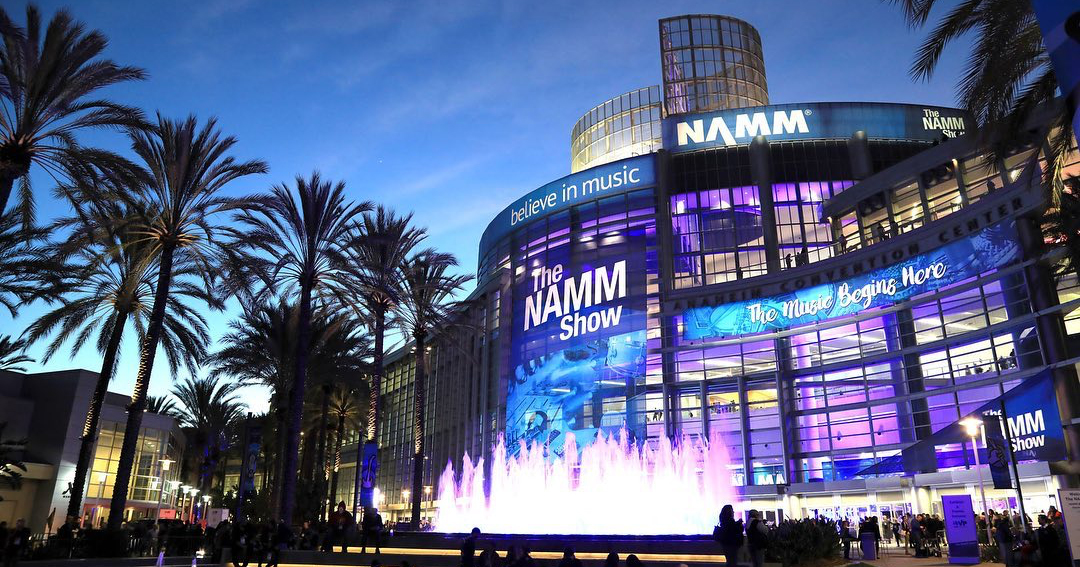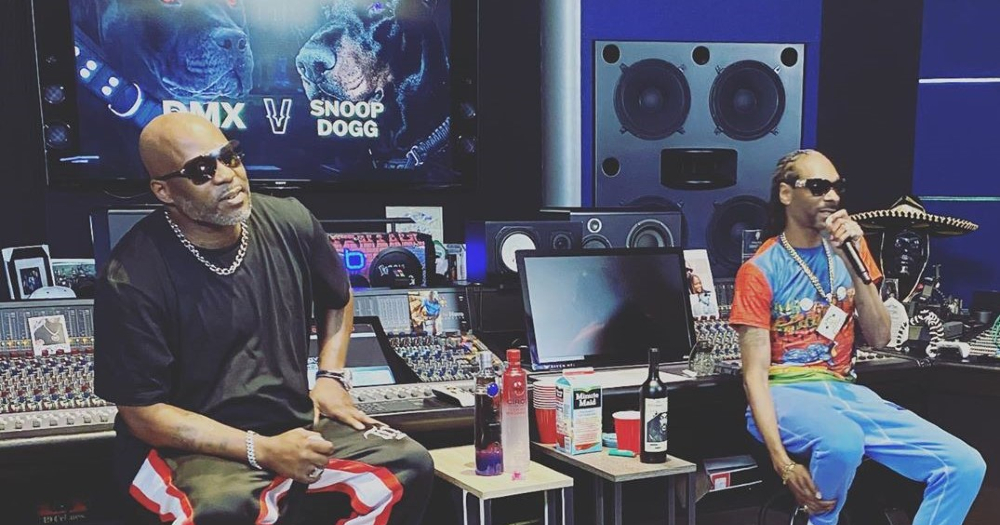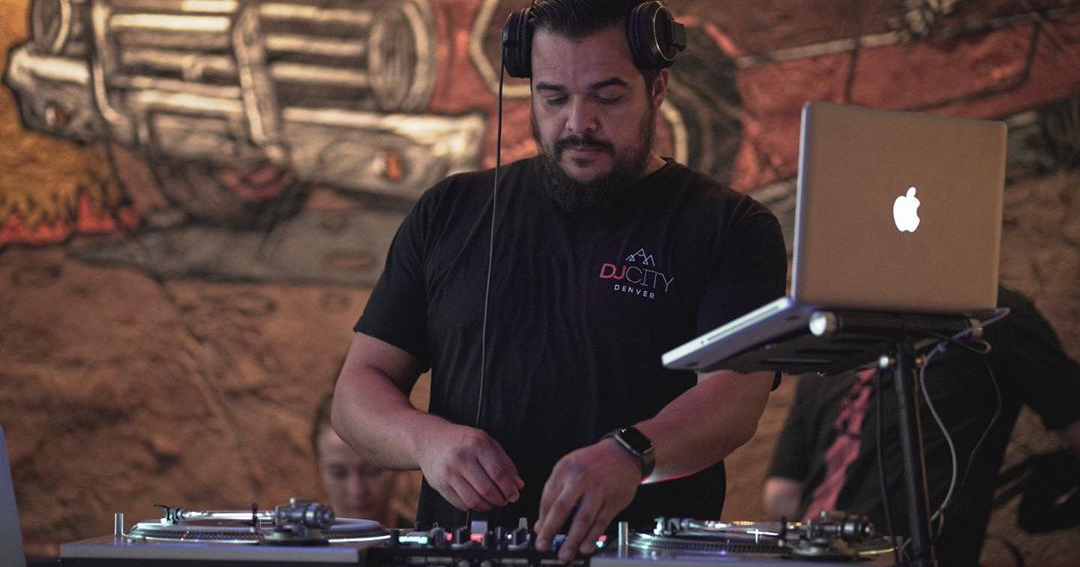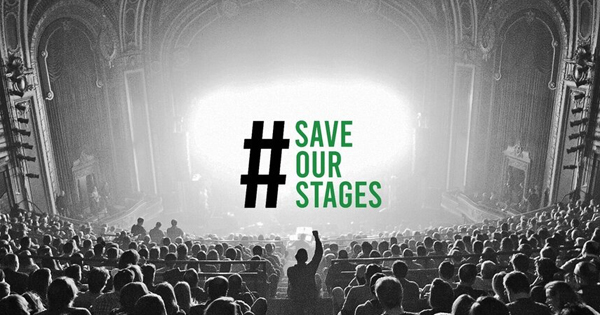Coronavirus
DJ Heat Discusses DJ Life in the WNBA’s COVID-19 ‘Wubble’
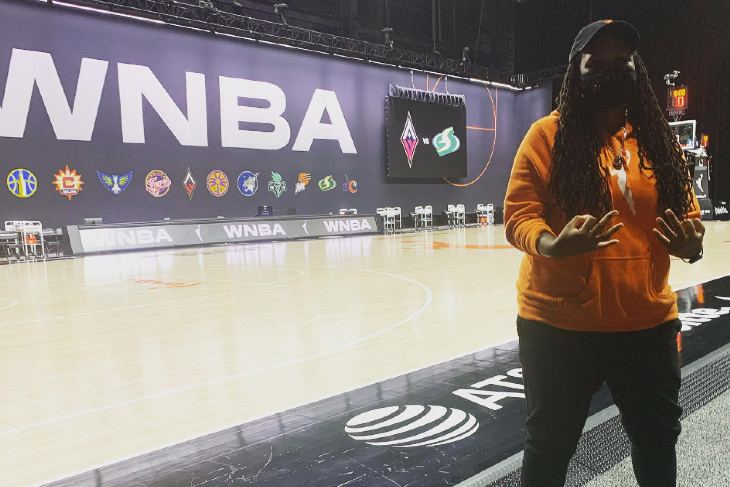
DJ Heat on the court at the WNBA’s “wubble” before a WNBA Finals game. (Source: DJ Heat)
Usually, August finds NBA and WNBA teams either in the midst of training camp or in the midst of the playoffs, respectively. However, due to the coronavirus pandemic, both leagues suspended regular play, and instead created condensed seasons for players interested in playing inside of tightly-monitored “bubble” communities in Orlando, Florida. Looking to replicate the exact feel of live basketball, fans were involved via Zoom-style courtside integration. As well, just like in their home arenas, DJs — like the WNBA’s Washington Mystics’ (and NBA’s Washington Wizards) official DJ, DJ Heat — were called upon to provide thumping soundtracks to add to the action. The experience that showcased how well sports leagues have adapted to these trying times.
“This company called 3PT Productions contacted me to play in the ‘wubble,’ (shorthand for “WNBA bubble”)” says DJ Heat. Heat’s a DC native who’s has been a club, radio, and live event DJ for nearly two decades but has worked with the Mystics as their game DJ for the past four. “I worked with them during NBA All-Star Weekend last year in Chicago. When they were asked to do the WNBA game production for the 2020 season, they needed three DJs, and they asked me to be one of them. I was down. I wasn’t busy really doing anything else, so it was a great opportunity.”
The notion of “home games” in a controlled environment presented a fascinating notion for Heat. “Typically, I’m just the Mystics’ DJ. But, in the wubble, I was every team’s ‘home court’ DJ at least once.” Playing music correlated with key audio elements from each team’s home arena, and their city’s musical heritage ultimately provided a “home court advantage” of sorts for DJs to include in their in-game mixes.
“For instance, when I DJ for the Mystics usually, there’s a lot of [legendary, percussive, and DC-born sound] go-go and [DC suburbs-based rapper ] Rico Nasty. Comparatively, for the Los Angeles Sparks, I got to play all of the west coast hip-hop and g-funk I loved as a child.”
Heat notes particularly that because she was sitting courtside and thus immediately next to gameplay and visible to fans at home, it impacted the number of interactions she had and added to the laid-back, yet competitive game environment. “As many requests were made by players and referees on the court as were made by fans on social media,” she recalls.
“I was DJing for the New York Liberty,” Heat starts. “The referee for the game was from Yonkers. After I played Notorious B.I.G.‘s remix to Mary J. Blige‘s ‘Real Love,’ he immediately told me that Mary was from Yonkers, too. He then requested some [fellow Yonkers-based artists] DMX and The Lox. When they dropped, I could see him give me a smile and thumbs up from the court during TV time outs.”
She continues,
“Everyone, even the ESPN reporters, would walk over and ask to hear songs. Even more, I’d try to tailor small moments like — during the WNBA Finals — playing the instrumental to [South Carolina based rapper] Lil Ru’s [2009 regional hit] ‘Nasty Song’ for Las Vegas Aces star Aja Wilson, who’s also a South Carolina resident. My social media lit up as people at home watching the game heard the instrumental and couldn’t believe I’d play it. But, playing in-game sets including a lot of unexpected music like that is also what made the wubble so unique.”
As it appears that the coronavirus could stretch into another basketball season, Heat cites the togetherness forget by the unique circumstances as a reason why she’d likely do it again.
“The players, referees, team staffs, production crew, and yes, DJs too, we all developed a bond because of the experience. Even though there was no crowd, we’re all professionals who feed off of the energy of one or one-thousand people. So, no matter what, we got into our zones for game-playing or providing entertainment.”
Related Post: DUSE Magazine Drops Documentary on DJcity Canada Director 4KORNERS
Facebook Clarifies Terms of Service for Live Streaming; What Are the DJ Community’s Next Steps?
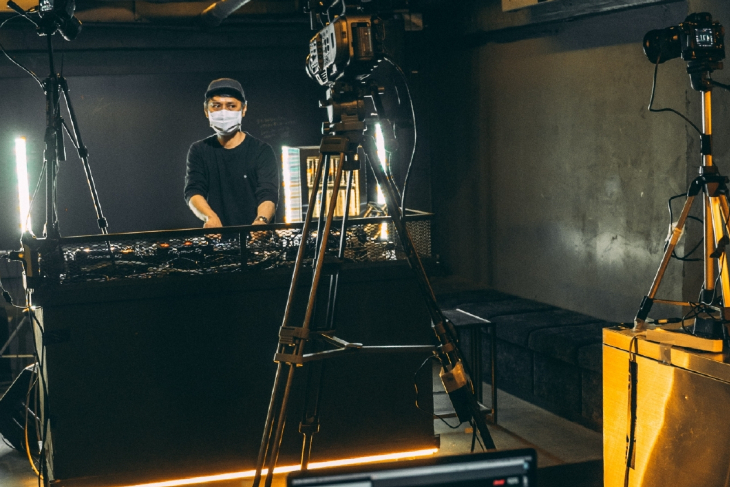
(Credit: Heshan Perera/Unsplash)
Rumors of Facebook‘s upcoming Terms of Service update noting the right to delete users and pages that “create music listening experiences” from the platform have turned out to be untrue.
According to a conversation between DJcity and a Facebook representative, the following is noted:
“People are likely mistaking the updates we’re making to our Facebook Terms of Service. Our music guidelines have been in place since we launched music on our platforms in 2018. They were written to balance our commitment to supporting musical expression on our platforms with also ensuring we uphold our agreements with rights holders, which remains unchanged.”
As the global quarantine enters its sixth month, DJs are navigating the decisions made by broadcasting platforms as they learn how to adapt to live streaming. Ultimately, it appears that by the end of 2020, there will be more answers than questions regarding how DJs can sustainably showcase their talents and earn a living wage in an online environment.
Platforms like Facebook, Instagram, and Twitch are becoming far more artist-friendly and much less DJ-equipped. Conversely, platforms like Mixcloud and YouTube are moving towards sustainability as online broadcast platforms.
Recently, Instagram-borne Verzuz announced partnerships with Apple Music and Diageo, Ciroc Vodka’s parent brand. Also, Twitch announced a two-day live stream partnership with Rolling Loud, a global, multi-city hip-hop festival, on September 12 and 13. Partnering with DJs requires negotiating rights fees and payment structures with BMI and ASCAP, while partnering with brands and festivals is an entirely different concept.
Facebook adds, “Shorter clips of music featuring a visual component are recommended [for use as Facebook live content]. As well, the greater the number of full-length recorded tracks in a video, the more likely it may be limited by the platform.”
Brands and events require platforms to aid in marketing products and ultimately turning profits from paid attendees. There is also a direct return on investment (ROI) for an outlet in working with a third-party. Hosting rights fees and platforms using an event’s popularity to increase their visibility amid numerous apps and sites battling for user bandwidth are vital drivers. Unless a DJ is a household name, the ROI likely isn’t there to make the opportunity worthwhile.
Other “traditional” streaming powers have emerged during the pandemic, too. Mixcloud was an early adapter in allowing DJs to stream mixes by negotiating with rights-holders and copyright organizations. Through their recent Mixcloud Live feature, rights-enabled DJ sets are possible with a Mixcloud Pro subscription.
Youtube averages two billion users per month and averages four times the daily traffic that Twitch does. Thus, Youtube has earned the revenue to be able to develop a content ID system that allows for rights-owners to stake their claim and share ad revenue on the uploaded/streamed mix.
Regardless of Facebook’s options, numerous streaming ideas and options deserve a closer look. First off, on the back of increased engagement from numerous users including the DJ community, Twitch stands to potentially increase its user base by 166% in the next year. For as much as live DJ sets are technically prohibited in their terms of service, there is the possibility, if mixing quickly (under 90 seconds) between tracks, to emerge unscathed due to the platform’s popularity and monetization opportunities, alone.
Instagram’s Badges program deserves consideration, too. Announced in June, the concept allows for Instagram Live viewers to send monetary tips to creators during live streams. Also, Instagram airs ads that play at the start of each user’s active engagement. The revenue from Instagram’s ads are paid at 55% to the creator and 45% to Instagram.
Soon after America’s national quarantine began, D-Nice played an Instagram Live DJ set for 150,000+ simultaneous viewers. About half a year later, Brandy and Monica‘s Verzuz battle was viewed by 700 percent more people. In the case of Brandy and Monica’s event, the combined net worth of the brands and sponsorships involved total $1.4 trillion. The support of live streaming from such major corporate players speaks to the power and potential it has.
Somewhere in between these massive successes, there exists a world of working DJs trying to figure out how to live stream sets for either fun or as a source of income. Thankfully, it appears that an industry is forming around live music streaming. Ideally, that industry’s success quickly trickles to the place where rights holders and platforms can discuss equitable ways to allow for DJs to spin music without fear of punishment.
Related Post: Instagram To Pay Content Creators Via ‘Badges’ Program and Ad Revenue
NAMM Announces Virtual Event to Replace 2021 Trade Show
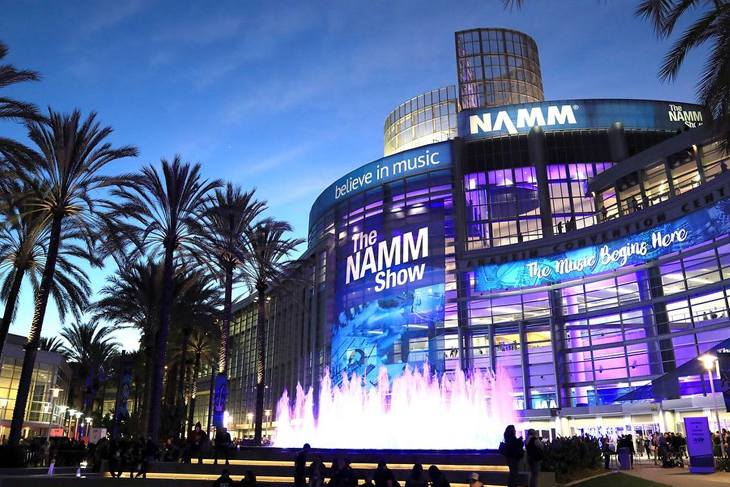
The NAMM Show. (Source: Instagram)
Fearing that the impact of the COVID-19 pandemic will stretch into next year, NAMM announced this week that their 2021 music equipment trade show would be replaced with the Believe In Music Week virtual event. The online-only event will be held during the week of January 18, 2021.
Believe in Music Week will feature a blend of signature NAMM events and special creative initiatives. These include The Grand Rally for Music Education, GenNext, Music Education Days, and the Nonprofit Management Institute. As well, the NAMM Foundation will host a series of “inspirational, leadership, and support-based” online events featuring leaders in the music education, collegiate, K-12, community, and nonprofit sectors offering numerous problem-solving solutions regarding the multiple challenges of the current era.
Regarding the switch from real-time activities, NAMM’s executive team notes, “[g]iven the current realities of the COVID-19 pandemic and the health and safety of NAMM members as our priority, it is now clear there is no path forward for an in-person event in California, and we have made the difficult decision to cancel The 2021 NAMM Show.”
They go on to say, “while we are disappointed that we will not be able to gather our NAMM family in-person this January, we are reimagining how to connect all facets of the industry while benefiting those most deeply impacted with the launch of Believe in Music: The Global Gathering to unify and support the people who bring music to the world.”
For more information, check out NAMM’s Believe in Music Week website here.
H/T: American Songwriter
Related Post: ‘Save Our Stages Act’ May Provide Economic Relief for Music Venues
As Verzuz Covers Billboard, Consider How the ‘Verzuz Effect’ Is Evolving Music
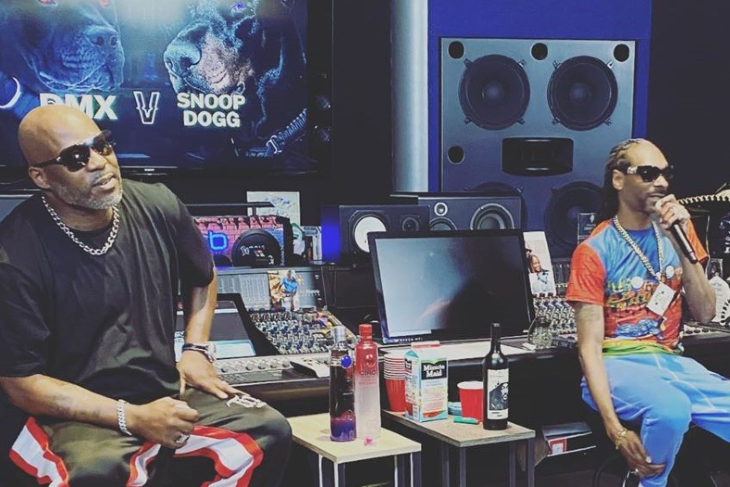
DMX and Snoop Dogg’s Verzuz battle. (Source: Complex)
Verzuz has evolved from a fun way to listen to hit songs on Instagram Live during quarantine into “a cultural institution [reviving and sparking] new interest in hip-hop and R&B’s legacy songs and artists.” This quote is pulled from the latest edition of Billboard Magazine, which features the Swizz Beatz and Timbaland co-created concept as its cover story. However, most powerful to consider regarding Verzuz’s future is the impact of the event-related popularity surge known as the “Verzuz Effect.”
Verzuz’s explosive potential is transforming key areas of the music industry. April 20’s Teddy Riley vs. Babyface battle resulted in a 115% increase in on-demand streams for both artists combined. Babyface also saw both his Instagram followers jumped from 300,000 to 1 million, plus an increase in sample clearance requests.
Recently, the impact has moved past Instagram and solely streaming music platforms. For new Verzuz partner Apple Music, Verzuz’s placement there has resulted in a reported over half a million concurrent views for each battle, the most-watched of any livestreams held on the platform.
Also, since Memorial Day, Diageo — Ciroc vodka‘s parent company — has signed on as a multimillion-dollar sponsor. Moreover, as also revealed in Billboard, if artists endorse, Apple Music, Diageo’s liquor brands, or any of the other forthcoming potential sponsors, Verzuz will offer artists payment for their battle time.
Already, Verzuz has — via Apple and Diageo — brands worth a Forbes-estimated $1.4 trillion already on board. What has developed during a global pandemic and one of the most shocking eras in the history of modern music is clearly impressive.
Latin and African pop-specific Verzuz battles are reportedly also on the horizon. Key to note here is Apple Music’s recent desire to engage in expansion in the African marketplace. As well, “Latin Music Is Growing Faster Than Overall U.S. Music Market” reads an April Rolling Stone headline. Attaching Verzuz to that growth could have gigantic possibilities, especially for that culture’s classic reggaeton, bachata, and salsa superstars.
“People need to be educated and celebrated. That’s why we say we’ve got a long runway with this thing,” Swizz Beatz notes. Creatives playing music hits over poor Instagram Live connections in the name of avoiding boredom has blossomed into a trillion-plus dollar industry. The “Verzuz Effect” has, and will continue to yield radical, industry-shifting consequences.
Interested in hearing a few classics from the Verzuz battles? Check out Beatsource‘s “Versus Series” here.
Related Post: Verzuz Officially Names Apple Music as a Broadcast Partner: What’s Next?
During COVID-19, How Are DJs Worldwide Handling Going Back To The Clubs?
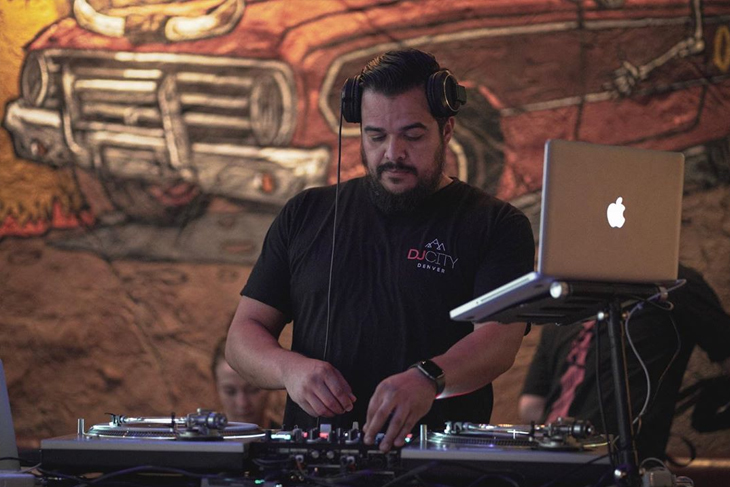
DJ RayRock. (Source: Instagram)
The reemergence of nightlife and club culture after the first wave of COVID-19 is starting to occur slowly but surely. In the United States and Canada, events are a rare, precaution-filled occurrence. However, in Europe, Japan, the Middle East, and the UK, music-filled evenings outdoors are becoming commonplace.
We talked to DJcity representatives and friends from around the world for some direct accounts of nightlife culture as the world begins to find some semblance of normalcy. This article is not a suggestion for opening procedures; instead, it is a report of how an industry attempts to restore itself during an unprecedented era.
United States
DJ EU (Atlanta, Georgia)
“Atlanta’s bars and clubs have been open since June 1 (Ravine has remained closed). Tongue and Groove reopened on June 18 and, alongside District, are the only clubs working under safety guidelines. They eliminated hookah, the general admission section is operating at 40% or 50%, and they’re heavily selling distanced VIP tables. Also, all staff is getting tested frequently and must wear a mask at all times during their shift. Also, patrons, upon entry, receive a temperature check. Plus, they have replaced acrylic cups with plastic ones. [Tongue and Groove] is the only club I feel safe working for at the moment. Other clubs are operating at ‘zero f*cks given.’ No safety precautions are being implemented besides ‘the staff wears a mask.’ Hookahs are being sold, and they are filled at full 100% capacity.
I also am hosting/throwing a bi-weekly, Latin-influenced party called Cielo at Estrella Rooftop. I am only allowing 80 to 90 people inside at once. Everyone must wear a mask if they got to the bar to order or to the bathroom. In the rooftop open area, you can take your mask off at your discretion.
DJ RayRock (Denver, Colorado)
“I was DJing six times a week before COVID. I’m now happy with my schedule of gigging twice a month. I schedule a homie the other nights. Bars and clubs are closing at 10 PM since COVID cases are spiking among younger age groups. When I do play, the music selections are all over the place, beyond ‘open format’ if that’s even a category. I can play the Home Depot theme song, and the crowd goes wild! [I’ve] been DJing at a private club in town since the end of May. The DJ booth is up and away, with zero interactions with guests. I definitely wouldn’t feel safe if it wasn’t for that separation barrier. I also DJed at a couple of spots in Downtown Denver that reopened. But, because they were unsafe work environments, I haven’t been back. Overall the party scene doesn’t feel the same as it used to. It’s just not the same vibe right now.”
DJ Ka5 (Miami, Florida)
“No clubs are open at all. Some lounges that serve food, and restaurants opened up with ‘phase one’ reopenings. They closed right before the 4th of July. At the moment, everything is closed, and no DJs are working.”
Middle East
DJ Jax (Dubai, United Arab Emirates)
“I’m back spinning four days a week, but some clubs here have been converted into ‘lounges.’ Also, there are plenty of bars and restaurants putting DJs on. Plus, the brunch culture out here is dope, so that’s helped DJs. However, because all of the clubs are not open, there are still DJs without gigs.”
Canada
DJ 4Korners (Toronto, Ontario)
“We’re not nearly back to normal yet, but at least some types of events are starting to happen. I just did my first show this past weekend. It was a concert at a drive-in movie theatre just outside of Toronto. It’s the beginning of a summer series that we’re going to be touring across the region. Plus, I have a private cannabis company-sponsored patio party coming up this Saturday and some basketball related sets coming up soon too, all in and around Toronto and other parts of the Province. Things are looking up for sure!”
DJ Marvel (Vancouver, British Columbia)
“In Vancouver, I have been playing my happy hour spot Colony for the past nine weeks. It’s been good. Colony is a huge space with everyone at tables. My main club gig at Fortune Sound Club reopened as more of a lounge with tables and fake plants on the dance floor for three weeks but closed again as a precaution.”
Europe and the UK
DJ Boramy (Barcelona, Spain)
“In Spain overall, no people are allowed to be in the street from 1:30 AM to 7 AM without a real reason. The clubs closed again in Barcelona two weeks ago, and in Madrid now, all restaurants and clubs will be closing at 1:30 AM. As far as in Marbella, everything is opened at the moment. Folks like myself, Luciano, Black Coffee, Andrea Oliva, who would usually be playing in Ibiza, now have gigs here. Also, all beach clubs are open but have limited access. Therefore, only a few of them can afford a DJ.”
DJ Stresh (Paris, France)
“Only a few bars and open-air places opened in France, but still no clubs.”
DJ Bisi (Luxembourg City, Luxembourg)
“I’ve been spinning for the past five-to-six weeks. The clubs are closed, and there’s no specific date when they’re going to reopen. However, restaurants and bars are in business, and I’ve agreed on a Friday residence in a restaurant/bar with a big terrace outside. The rules are that people need to wear masks all the time except when they are seated on their specific table. As far as dancing, if they do so and they stay around their table, nothing is going to happen. In some other places, it is not tolerated, and even while music is being played, people are not allowed to stand. To play for these crowds is a bit boring, but better than nothing.”
DJ Australan (Prague, Czech Republic)
“Yes, we are back to DJing in the Czech Republic and Slovakia region, with some limitations though. Some clubs now have a one DJ policy for the night. Or, the clubs are now only a Friday or Saturday thing, only.”
DJ G-Dugz (Vienna, Austria)
“I was DJing last week in outdoor locations and some bars/lounges which have small dancefloors or no dancefloor at all. Only bars and restaurants are open, but at 1 AM everything must close. We were hoping that clubs might open at the beginning of August, but there has been no update.”
DJ AT-80 (Köln, Germany)
“Last Saturday, I played at a club which has opened an outdoor beergarden.”
DJ Strght (Dresden, Germany)
“Here in Dresden, I’m playing background music in a fitness studio called John Reed. I am also spinning in restaurants and bars with outdoor areas where they can ensure social distancing.”
DJames (London, England)
“I’ve played an afrobeats brunch at Madison, and I’m back there on Saturday.”
DJ Stressy (Sweden)
“Sweden has been very liberal. There are no recommendations/rules for masks. I’ve not had a gig since March, and my pre-coronavirus club residency will open up any time soon. Everything apart from “real” club venues were open [without regulations] until like, two months ago. Now, all venues have a ‘sit-dancing/table-dancing’ rule. Some clubs have had invite-only nights, where, because there are no more than 50 people in a venue, those rules do not apply because it is a limited, private event.
Bars, supermarkets, and shopping malls have remained open but with rules of social distancing (tape on the floor to indicate appropriate distance, etc.). The government regularly checks businesses and can close them if they don’t practice social distancing well enough.”
Asia
DJ Yuki (Japan)
“All Japanese clubs/bars have opened since July 1. But all venues are very serious about the guidelines.”
Related Post: Notable DJs Share Plans for Dealing With Coronavirus
‘Save Our Stages Act’ May Provide Economic Relief for Music Venues
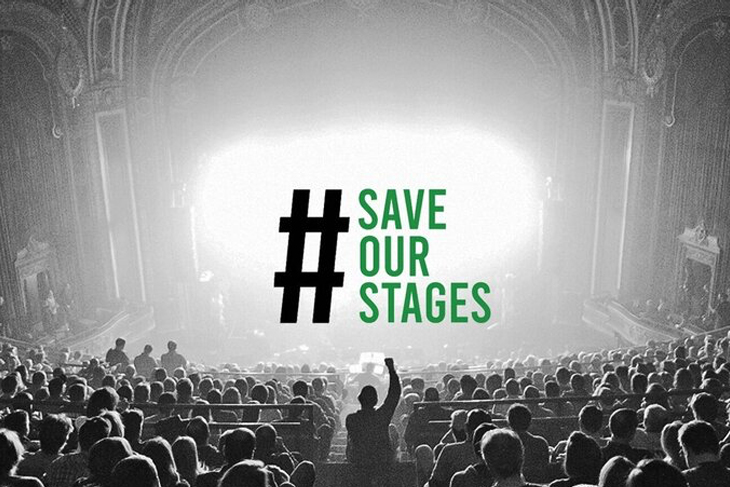
(Source: National Independent Venue Association)
The “Save Our Stages Act,” a bipartisan bill that aims to provide economic relief for independent music venues affected by COVID-19, was introduced to the United States Congress earlier this week. The bill was co-authored by Senators Amy Klobuchar (D-MN) and John Cornyn (R-TX) in response to concerns raised by the National Independent Venue Association.
The bill calls for $10 billion, spread over the next six months, to be made available in the form of Small Business Administration grants. Applicants will be eligible for up to 45% of their 2019 operating costs or $12 million, whichever is less.
In order to reserve funds for those hit hardest by the pandemic, the “Save Our Stages Act” strives to “narrowly define independent live venue operators, promoters, and talent representatives to prevent large, international corporations from receiving federal grant funding.”
According to concert industry publication Pollstar, venues are at risk of losing a combined $8.9 billion in revenue if they were to remain closed for the rest of the year. NIVA’s Adam Hartke issued a statement, saying:
“While existing government assistance programs have helped other industries, they weren’t tailored to meet the needs of small businesses like ours that have zero revenue, enormous overhead and no visibility into when we can fully re-open. The Save Our Stages Act will provide the assistance we need to get through the shutdown until we can reopen safely and once again become the economic generators for our communities that we’ve always been.”
H/T: Rolling Stone
Related Post: DJ Envy Raises Over $106,000 for DJs Impacted by COVID-19
Popular
-
May 23, 2023
The Best Remixes for Wedding DJs 2023
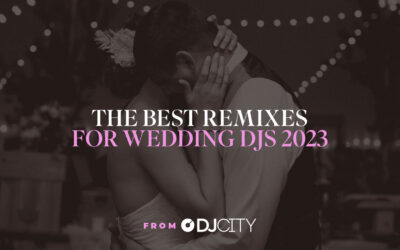
Wedding season has arrived! DJcity’s Remix Director Sir Marcus has put together a list of wedding-friendly tracks guaranteed to freshen up your DJ sets and...
-
December 22, 2023
Our Biggest Sale of the Year: Join DJcity for $1 🚨
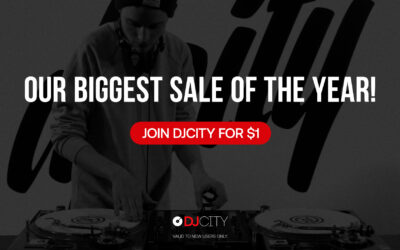
We just launched our biggest sale of the year! Get 90% off a DJcity membership and join for just $1 (regular price $10) for the first month when you check...
-
February 15, 2022
New DJcity Pricing Plans Now Available

Here at DJcity, customer satisfaction is crucial, and therefore we always take input and feedback from our customers and DJ community very seriously. Due t...
-
April 12, 2024
New and Notable Tracks: Apr. 12
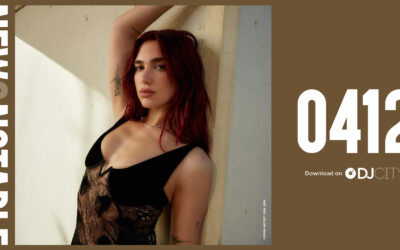
New tracks that DJs should know about.
-
December 18, 2023
Top 30 Remixes, Bootlegs, and DJ Edits of 2023
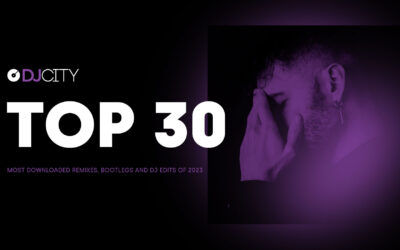
ATCG. Last Thursday, DJcity revealed its most downloaded tracks of 2023. Today, we dive deeper to uncover the most popular remixes, bootlegs, and edits of...
-
July 6, 2022
Afrobeats and Dance added as Main Genres on DJcity
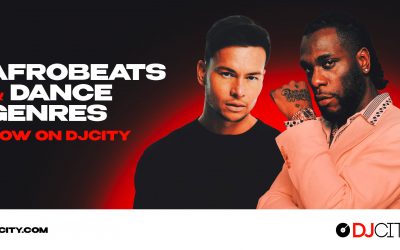
At DJcity, we are always working to make sure that the way our record pool functions reflects the needs of our users. Therefore in our latest update, we sw...
-
June 4, 2020
50 Cent’s ‘In Da Club’ Remixed by Mr. M!X: DJcity Exclusive
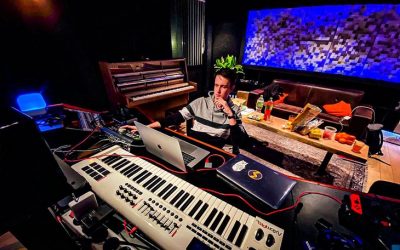
Mr. M!X. (Source:Instagram) Dutch DJ/producer MR. M!X has delivered a remix of 50 Cent's birthday anthem "In Da Club." The moombahton-inspired flip is avai...
-
June 29, 2015
Skrillex and Diplo Drop ‘Where Are U Now’ Video Feat. Justin Bieber
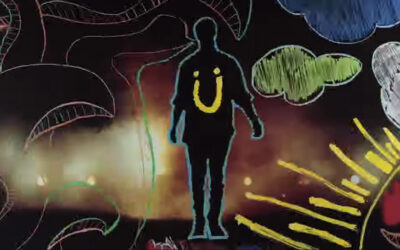
Some fans were skeptical when they discovered that Skrillex and Diplo's debut Jack U album includes a song with Justin Bieber. "Where Are U Now" has...
-
November 24, 2015
2 Chainz Releases ‘BFF’ Video Feat. Jeezy
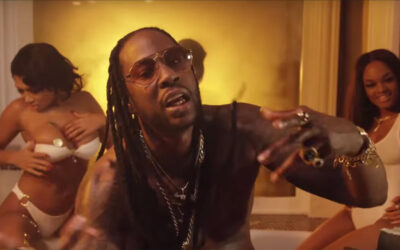
2 Chainz released the remix of "BFF" featuring Jeezy two weeks ago, and today he returns with visuals to go along with it. The video for the Zaytove...
-
January 21, 2020
Watch The Weeknd’s ‘Blinding Lights’ Music Video
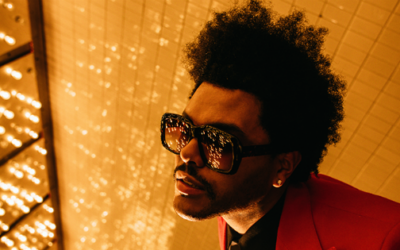
The Weeknd has released a video treatment for his Max Martin-produced hit "Blinding Lights." The song peaked at No. 11 on Billboard's Hot 100 chart. The da...

